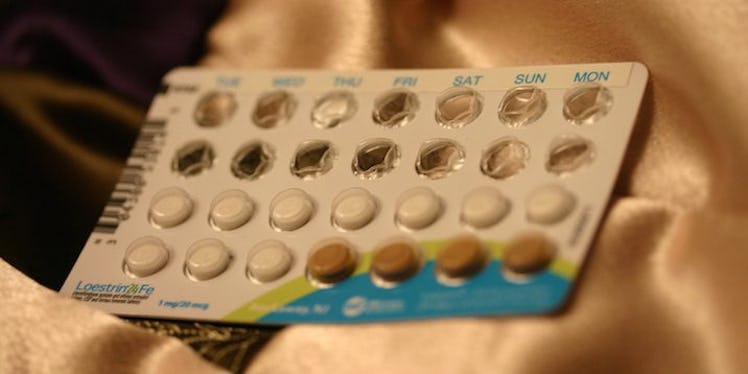
Your Birth Control May Be Pricier And Harder To Get Thanks To Trump SCOTUS Nom
President Donald Trump nominated Neil Gorsuch to the Supreme Court on Tuesday, January 31. Gorsuch wants to take away your free birth control, based on his legal history.
Gorsuch is known to be a conservative judge, ruling along lines similar to Justice Antonin Scalia, whose seat he would be filling, should Democrats allow that to happen.
Since Gorsuch was nominated, folks are wondering what he would do should he officially makes it onto the Supreme Court.
The Supreme Court decides a lot of cases that affect your life, so this is significant.
And many have been wondering what effect he would have on women's health and contraceptive options.
Under the Affordable Care Act (aka Obamacare), people can get birth control for free.
Access to birth control — common sense dictates — leads to fewer unplanned pregnancies. The American abortion rate is at its lowest since pre-Roe days, according to the most recent estimate. Many say this is at least in part because of Obamacare.
Although you might think this would mean that pro-life conservatives like policies that make contraceptives accessible, it does not.
Many religious institutions oppose contraceptives under the belief that sex should only be for procreation.
So when Obamacare came around, religious people challenged the rule that insurance had to cover birth control.
Two of these cases have made it to the Supreme Court. Arguably the more famous one is Burwell v. Hobby Lobby.
In this case, Hobby Lobby, a craft store chain, argued it shouldn't have to cover their employees's birth control with their insurance because of religion.
The Supreme Court ruled in favor of Hobby Lobby, agreeing it shouldn't have to cover birth control.
Gorsuch, Trump's Supreme Court pick, also ruled in favor of Hobby Lobby. Gorsuch wrote,
All of us must answer for ourselves whether and to what degree we are willing to be involved in the wrongdoing of others. For some, religion provides an essential source of guidance both about what constitutes wrongful conduct and the degree to which those who assist others in committing wrongful conduct themselves bear moral culpability.
This translates to: Why should God-fearing, celibate Christians have to pay for birth control for ye sinners? (Which completely ignores the whole "people don't always use birth control to have sex" thing, but whatever — argument for another day.)
The other big case was Zubik v. Burwell.
That one was going on last year in the Supreme Court, but the court eventually decided to kick it back down to lower courts last May.
That case was a continuation of Hobby Lobby.
Hobby Lobby said religiously-owned companies can fill out a one-page form to inform the government that they are religious and thus won't be covering birth control. With that form, the government — not the company — would cover birth control.
But many religious companies thought this was still going too far, as it made them complicit to contraceptives.
One of the groups that fought it was Little Sisters of the Poor. Gorsuch sided with the Little Sisters, writing,
When a law demands that a person do something the person considers sinful, and the penalty for refusal is a large financial penalty, then the law imposes a substantial burden on that person's free exercise of religion.
The Little Sisters of the Poor case was combined with others for the Zubik case that made it to the Supreme Court.
So essentially, we know Gorsuch doesn't think good Christians should have to pay for the birth control of sinners.
His opinions are based in religious morality (which, again, misses every other reason women take birth control — but that's argument for another day).
If this concerns you in terms of your personal health, talk to your doctor.
If this concerns you in terms of your political health, talk to your representatives in Congress.
Citations: Abortion rate declines to historic low, with Obamacare a likely contributor, study says (Los Angeles Times), 5 Things Women Need to Know About the Hobby Lobby Ruling (Time), Here's What Trump's Supreme Court Pick Has Written About Abortion And Birth Control (BuzzFeed), Hobby Lobby and executive power: Gorsuch's key rulings (CNN), Zubik v. Burwell (SCOTUSblog), Trump Nominates Neil Gorsuch for the U.S. Supreme Court (The Atlantic)